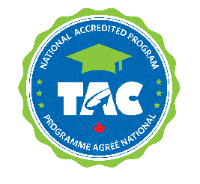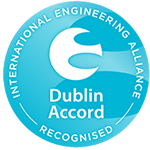Remotely Operated Vehicles
You are ready to turn your interest in electronics, hydraulics and machines into a career in remotely operated vehicles.
Offshore oil, gas and wind energy, exploration and subsea structures, onshore manufacturing, simulation, and aquaculture industries.
Program Location:
Marine Institute campus, Ridge Road (St. John’s)
Program Length:
Two years. Advanced standing option available to enter into year two. Students can continue into the Underwater Vehicles program in the third year.
Courses:
Practical Experience:
Two technical sessions and one work term
Application Deadline:
Fall Admission:
April 15
For More Information:
2023-2024 Undergraduate Viewbook
The Marine Institute’s ROV Operator program is the only program of its kind in Canada.
Preparing students to work with a wide range of vehicles, perform ROV maintenance, understand ROV systems and work safely in unique ocean environments, this program provides a solid foundation in electronics and mechanical technology through classroom, simulated and workplace training.
Four 13-week academic terms over two years with two technical sessions and one eight-week work term.
Applicants must meet Marine Institute’s Application and Admission Regulations and provide proof of physical fitness through the Canadian Association of Petroleum Producers (CAPP) Offshore Medical.
"The program is a good merger of theory based subjects and practical applications of the skills I’ve learned, including being able to work hands on with vehicle systems. I’m looking forward to starting a research career, using ROVs to study geological features of the seafloor."
- Keely-Shaye Lullwitz
MI Graduate
- Marine Institute's Remotely Operated Vehicles – Technician Diploma is a Canadian Technology Accreditation Board national accredited program at the technician level.

- National program accreditation involves an independent team of certified professionals performing an extensive audit, which provides graduates and employers confidence the program meets the educational standards of Canada's engineering technology and applied science profession.
- Graduating from a national accredited program creates an expedited path to becoming a certified professional with provincial certifying bodies in Canada.
- Marine Institute's Remotely Operated Vehicles – Technician Diploma is a national accredited program recognized by the International Engineering Alliance under the Dublin Accord.

Graduates are recognized by the Diver Certification Board of Canada (DCBC) and are eligible to register with DCBC as an ROV Operator.


